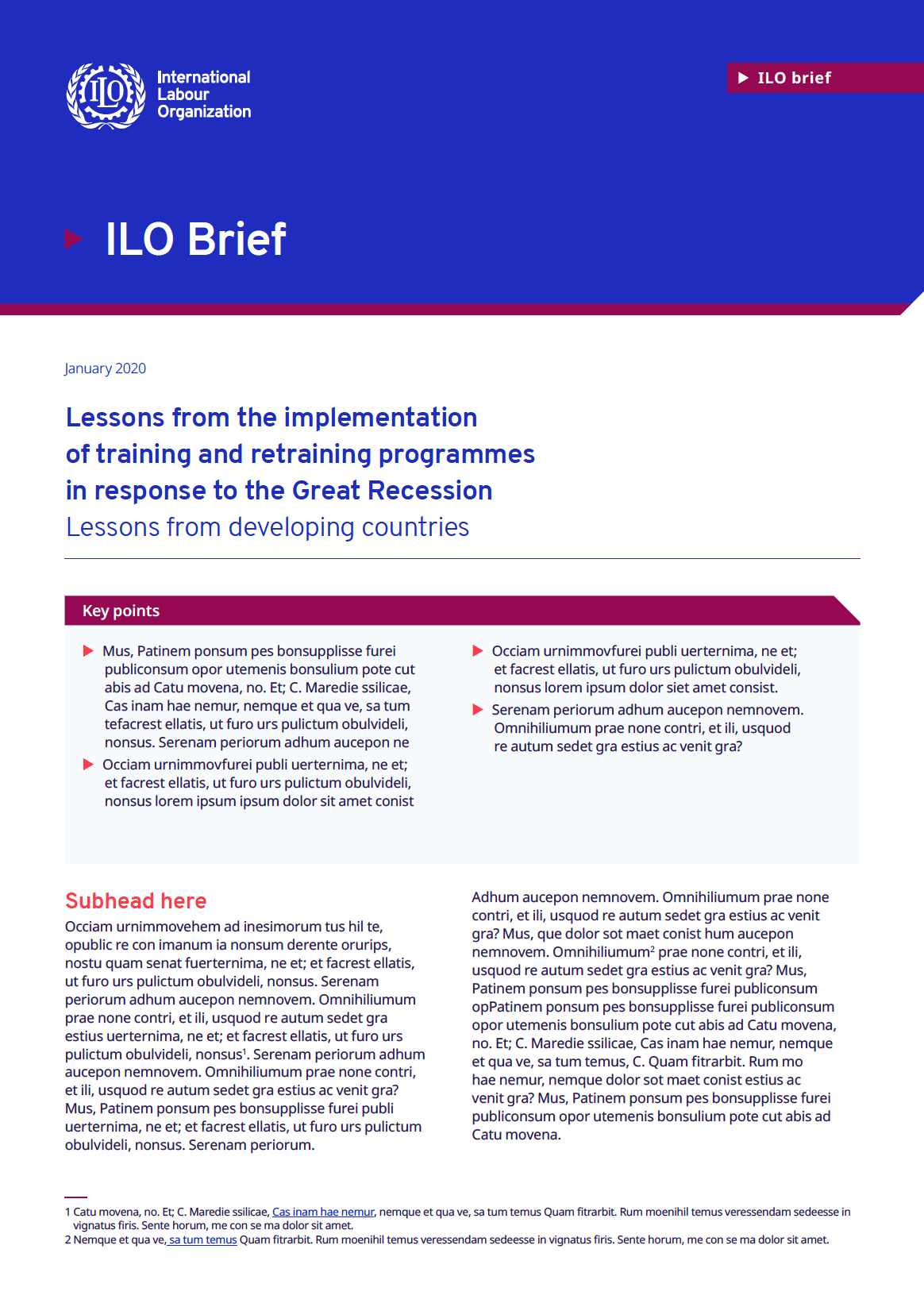Russian Federation
Publication
Improving skills and lifelong learning for workers in the informal economy to promote decent work and enhance transitions to formality
Publication Date:
12 Feb 2024
Source:
ILO
Workers in the informal economy face barriers to training due to costs and limited availability. Women encounter greater challenges accessing opportunities. Employers invest less in training than formal counterparts, and available programs may not be suitable or recognized. Therefore, governments can expand financing options and make training more flexible. The paper highlights strategies including aligning programs with labour market demands and investing in basic skills education as well as targeted interventions that are essential for enhancing access and relevance in skills training.
Generic document
Policies for system change and lifelong learning - A Torino Process cross-country digest (2018–21)
Publication Date:
22 Aug 2022
Source:
Bilateral organizations-European Training Foundation
This report presents an overview of policies and actions in support of lifelong learning in the ETF’s partner countries in South Eastern Europe and Turkey, Central Asia, the Eastern Partnership region, and the Southern and Eastern Mediterranean. Our analysis explores the extent to which the creation of lifelong learning opportunities is a priority in the reform agenda of these countries in the field of education and training, and the ways in which they are influencing the formation of that agenda. The report also discusses the efforts of authorities and stakeholders in implementing their reform plans in the wake of changing circumstances before and during the Covid-19 pandemic, and identifies policy gaps and lessons to be learned before providing a handful of policy recommendations in a cross-country perspective.
Project documentation
Key results: Applying the G20 Training Strategy: A Partnership of the ILO and the Russian Federation (Phase 2)
Publication Date:
24 Jul 2021
Source:
ILO
The Project aimed to assist developing and middle-income countries to assess their skills development needs and support the capacity development of national stakeholders to critically analyze, design, update and adapt national and sectoral skills development systems to find country-specific solutions to improve employability and promote decent employment opportunities for all.
Document
Boosting productivity in Russia: Skills, education and innovation
Publication Date:
10 Jun 2016
Source:
International organizations
The labour market in Russia is very flexible. Firms adjust to economic shocks through wage cuts, working hour reductions and minimisation of non-wage labour costs. Workers react by changing jobs. This results in a high and stable overall employment rate, but also high wage inequality, informality and labour turnover, which limits incentives for firms to invest in human capital and productivity improvements. While educational attainment is very high, the education system needs to be strengthened to respond to the needs of a skill-based economy. School-employer cooperation is low and opportunities for higher education are unequally distributed. Adequate funding for education institutions is not assured everywhere while inefficiencies persist.
Private spending on innovation is very low and Russia underperforms in terms of scientific outputs and patents. Support for low-tech innovation and technology adoption, especially among SMEs is narrow because of a bias towards large and high-tech projects, which however are only loosely related to Russian manufacturing capacity. Reform of the public R&D sector is incomplete, notably with respect to strengthening funding on a competitive basis.
This Working Paper relates to the '2014 Economic Survey of the Russian Federation'.
DOI: 10.1787/5js4w26114r2-en
Private spending on innovation is very low and Russia underperforms in terms of scientific outputs and patents. Support for low-tech innovation and technology adoption, especially among SMEs is narrow because of a bias towards large and high-tech projects, which however are only loosely related to Russian manufacturing capacity. Reform of the public R&D sector is incomplete, notably with respect to strengthening funding on a competitive basis.
This Working Paper relates to the '2014 Economic Survey of the Russian Federation'.
DOI: 10.1787/5js4w26114r2-en


